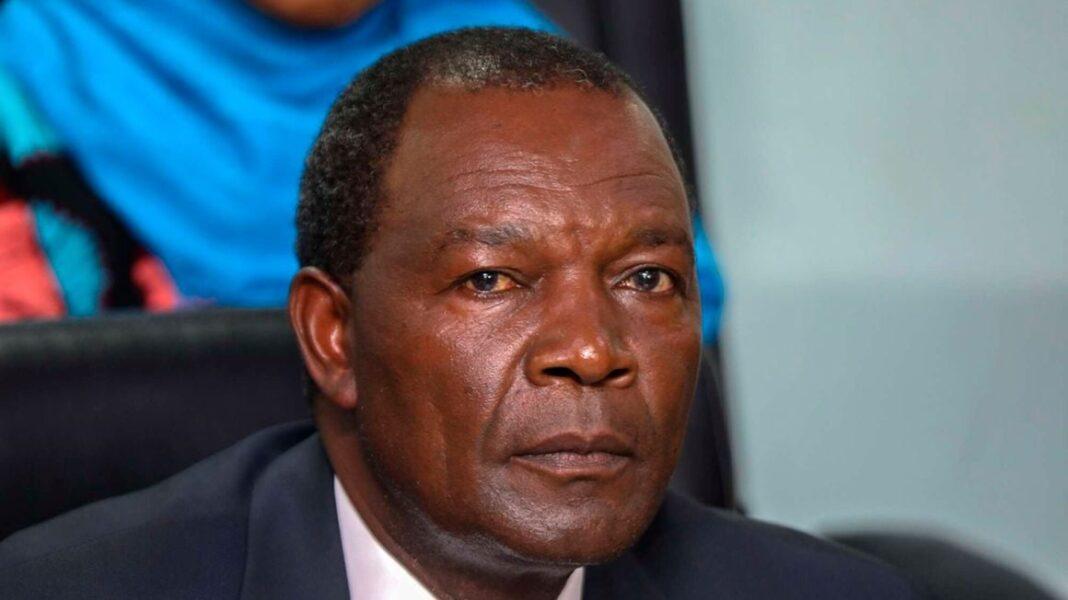Kenya’s Fuel Import Deal Fiasco: IMF Exposes Massive $400M Stumble
The fuel import scheme’s potential cost to taxpayers, as assessed by the International Monetary Fund, is approximately $400 million. This indicates that the government-to-government (G-to-G) agreement is not as risk-free as it has been claimed.
According to the latest country report under the Extended Fund Facility (EFF) and Extended Credit Facility (ECF) Arrangements, the International Monetary Fund (IMF) states that the state’s potential financial obligations resulting from the letters of support provided to supply chain participants are estimated to be 0.4 percent of the Gross Domestic Product (GDP).
A contingent liability refers to a potential future loss that is contingent upon the outcome of a particular event.
Regarding the G2G mechanism initiated in April 2023, the IMF asserts that if fuel prices are not adjusted to entirely pass on foreign exchange losses to end consumers, taxpayers may face demands on the national budget.
To protect itself from potential losses in foreign exchange, Kenya established an interest-generating escrow account. The funds generated from the sale of fuel in this agreement are deposited into this account. The interest earned on these funds is calculated based on the 91-day Treasury Bill rate minus 200 basis points (equivalent to two percentage points). This interest is then directed towards a stabilization account overseen by the government, aiming to offset any foreign exchange losses.
The legal arrangements of the fuel import scheme were examined by both the IMF staff and the Attorney-General of Kenya. They concluded that, as outlined in the Technical Memorandum of Understanding within the IMF-supported EFF/ECF arrangements, these arrangements do not result in government guarantees for private debt under domestic law.
“The government is, nevertheless, exposed to calls on the national budget in case prices at the pump are not adjusted to fully pass through any FX valuation losses under the mechanism to final consumers,” said the IMF. “It may further have to raise U.S. dollar financing to cover any shortfalls of FX, needed to repay exporters, in the domestic market.”
The Kenyan government has expressed its desire to withdraw from the program in December, leaving it in the hands of private entities.
The program, initially set for nine months but later extended until the conclusion of 2024, involves the government granting letters of support to domestic oil marketing companies (OMCs). These letters also extend benefits to banks, financial institutions, credit insurance providers, lenders, and any hedging counterparties involved in providing financing, insurance, refinancing, or hedging services to the OMCs.
The fuel is brought in with a six-month credit arrangement, supported by domestic banks issuing commercial letters of credit, which are further confirmed by international banks.
ALSO READ:
- Raila Ally Breaks Silence After Ruto-Uhuru Meeting
- Gachagua Close Ally Karungo Wa Thang’wa Accepts Ruto’s CBS Award
- Gov’t to Release Ksh.32 Billion to Counties Next Week – DP Kindiki
- High Court Strikes Down Ruto-Raila 2023 IEBC Amendment Bill
- Kenya Water Towers Agency Dissolved: Government Moves to Streamline State Corporations
Banks have been hesitant to proceed with issuing letters of credit unless accompanied by government support.
In a previous interview, Treasury Cabinet Secretary Njuguna Ndung’u mentioned that the government would take a backseat, enabling private sector entities such as OMCs, banks, and credit insurance providers to manage the initiative.
Professor Ndung’u, nonetheless, maintained that the program constituted a trade finance agreement that posed no risks to the government of Kenya.
The program, initiated on March 10, 2023, through collaboration between the Kenyan government and the governments of the United Arab Emirates and Saudi Arabia, was presented as a strategy to alleviate foreign exchange challenges. It aimed to reduce the need for purchasing fuel, the country’s primary import, from the spot market by delaying the requirement for approximately $500 million in dollars each month.
Nevertheless, Professor Ndung’u and Dr. Kamau Thugge, the Governor of the Central Bank of Kenya (CBK), conveyed in a letter to the IMF that the agreement did not fulfill its intended purpose.
“The government intends to exit the oil import arrangement, as we are cognizant of the distortions it has created in the FX market, the accompanying increase in rollover risk of the private sector financing facilities supporting it and remain committed to private market solutions in the energy market,” they wrote.
The government officials also pledged to employ market rates for all foreign exchange conversions within the oil program.
“We will also amend regulations on the fuel pricing formula to specify pass-through of the exchange rate risk component and any other risks that may materialize,” said the government officials.
Kenya’s Fuel Import Deal Fiasco: IMF Exposes Massive $400M Stumble
